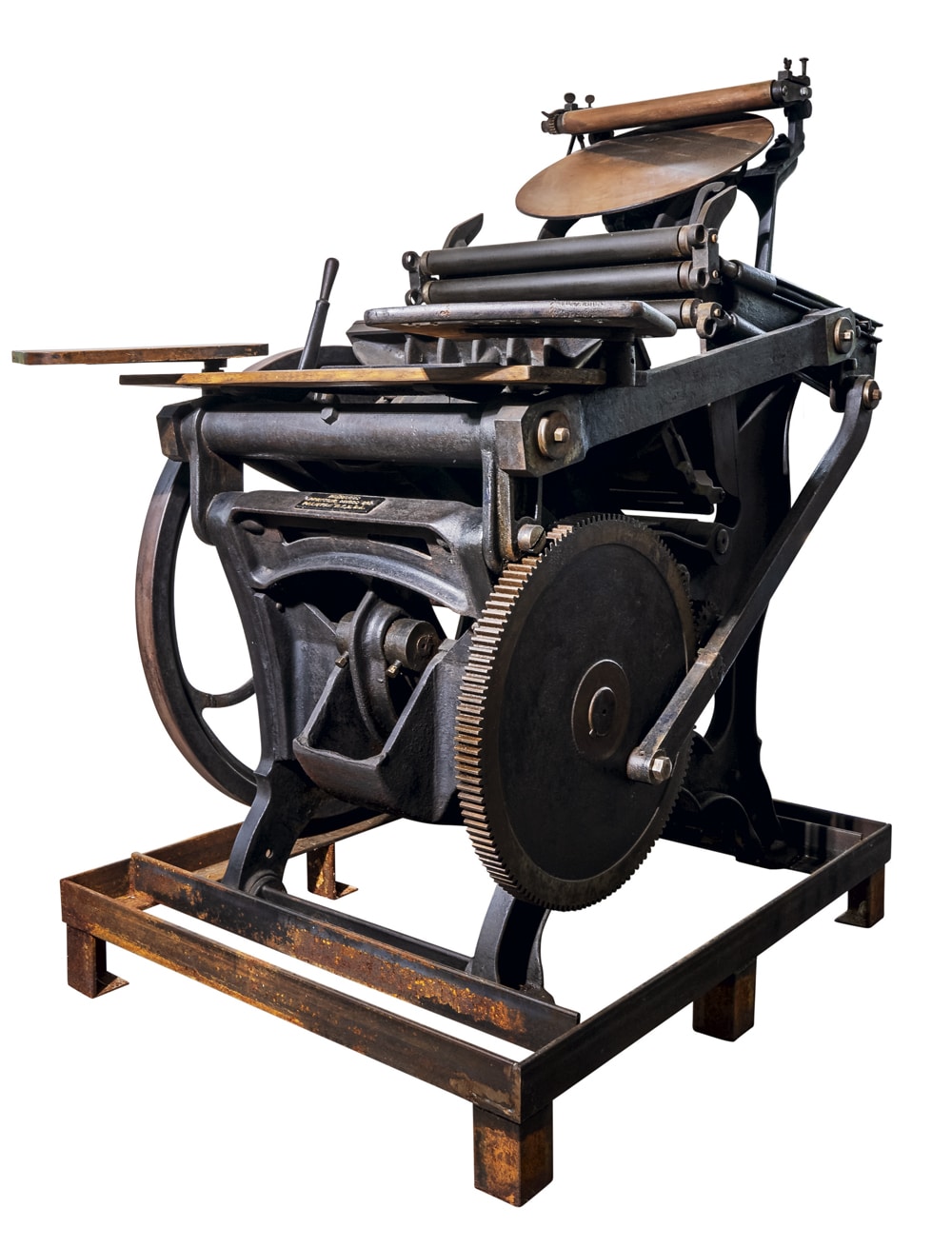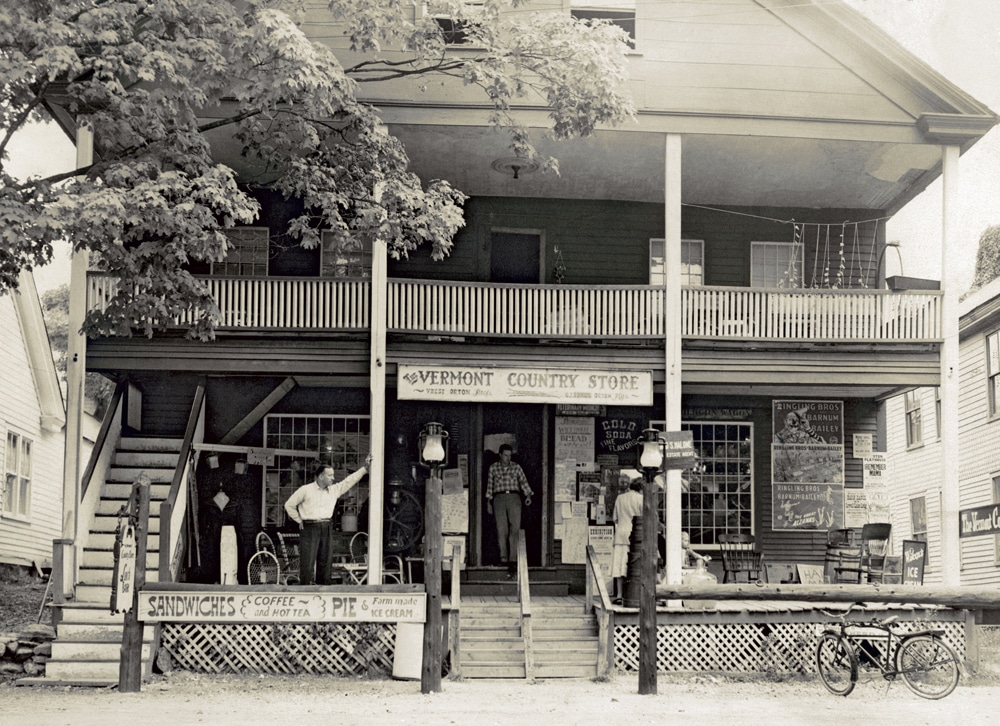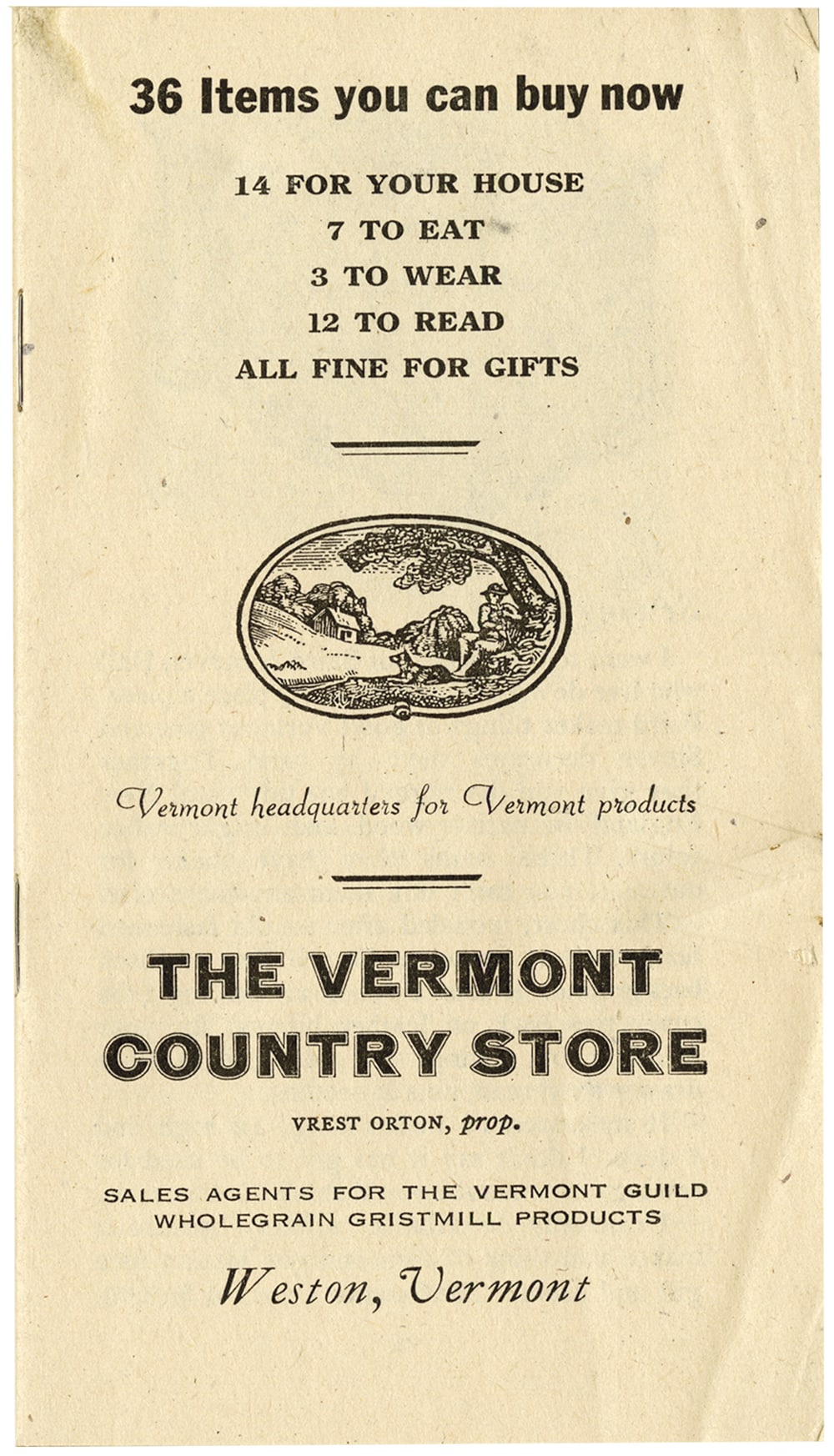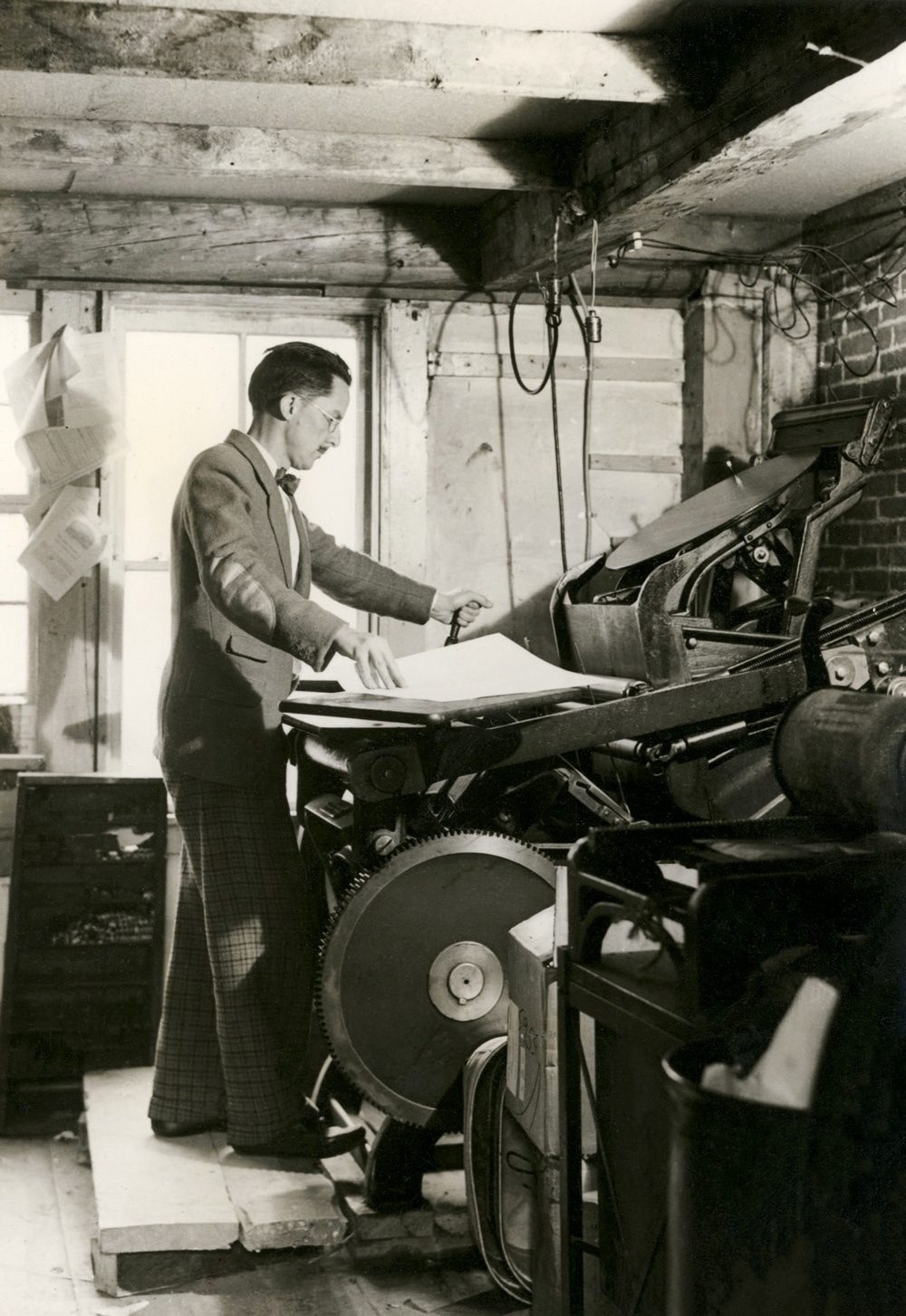Meet the Press | Up Close
If you were in the market for a printing press toward the end of the 19th century, your eye may have been caught by an ad from the Peerless Printing Press Company in Palmyra, New York. Headlined “That Smooth, Easy-Running ‘Peerless,’” it gets right to the point: Constructed substantially. Built to stand the test. High […]

Looming large among the collection of artifacts at the Vermont Country Store’s headquarters, this 19th-century printing press cranked out the company’s first catalogs.
Photo Credit : Corey Hendrickson
Photo Credit : Corey Hendrickson
If you were in the market for a printing press toward the end of the 19th century, your eye may have been caught by an ad from the Peerless Printing Press Company in Palmyra, New York. Headlined “That Smooth, Easy-Running ‘Peerless,’” it gets right to the point: Constructed substantially. Built to stand the test. High speed—no noise—no jar—is easily operated. Remember we have been building these machines for over 30 years, and each year have improved its mechanism.
Straightforward and puffery-free, it’s the sort of sales pitch that would have appealed to the late Vrest Orton, founder of the Vermont Country Store, who learned the importance of less-is-more salesmanship from none other than Leon Leonwood Bean. In a 1979 radio interview, Vrest recalled the legendary Maine retailer telling him early on, “When you write something in your catalog, don’t say the merchandise is better than it is. It’s much better for the customer who gets the merchandise to say it’s better than you said it was.”
Vrest Orton was born in 1897, so he probably never saw the Peerless ad. And by the time he embarked on his retail career in the 1940s, a Peerless press was a bona fide antique. But it’s fitting that this machine, its virtues plainly extolled, would churn out the first editions of Vrest’s catalog—a publication whose success selling products that were, above all else, useful would help turn the Vermont Country Store into the multimillion-dollar family company it is today, 75 years onward.
—
A visit to the Vermont Country Store headquarters in Manchester, Vermont, feels a little like stepping into a local historical society, albeit a particularly well-funded one. The lobby walls are filled with museum-quality panels of vintage photos and Orton family lore. In an alcove next to the company archives is a display of technological artifacts ranging from Vrest’s 1930s Smith & Corona to his son Lyman’s 15-pound “laptop,” a 1989 Compaq. And at the foot of the main staircase sits the Peerless press, several hundred pounds of weathered cast iron, next to its similarly hulking paper cutter.
Now 80, Lyman Orton is the patriarch of the company’s family storekeepers, a group rounded out by sons Cabot, Gardner, and Eliot. Lyman was only 4 when his father, spurred by memories of the country store run by his own father and grandfather in North Calais, Vermont, began laying the groundwork for the Vermont Country Store with his wife, Mildred, in 1945. In Weston, where the family lived, there was a suitable building (by coincidence, a virtual twin of the North Calais store), but because of war shortages, merchandise for stocking the shelves was hard to come by. So they began with mail-order.

“My father had started a print shop called the Countryman Press in 1935, so he already had the printing presses, and he knew how to write and put out a catalog,” Lyman says. “So he gets some local products together, calls them ‘36 items you can buy now,’ and prints a little catalog to send to mainly people on the family Christmas card list.”

Enlivened by Vrest’s conversational descriptions (The flavor is the best I have ever tasted, and I am a crabby fellow who insists on something pretty special in popcorn), the medley of local crafts, rurally themed books, and whole-grain foodstuffs drew plenty of orders. “But my parents also got letters from people saying, ‘We’re coming up next summer and we want to see the store,’” Lyman says, and laughs. “There was no store yet!”
The Ortons had rectified that by 1946, though, when they opened the Vermont Country Store in the heart of Weston. Lyman remembers learning how to sweep the wooden floor with sawdust and kerosene, and how to open a barrel of pickles; at 6, he was already stamping endorsements on mail-order checks.
As a kid he even helped with the catalog, hand-feeding the paper into the press alongside his father in the garage print shop. “Even to this day, when I pick up a ream of paper for the copy machine, I automatically flex it to break the pages apart, like this.” Lyman gives a vigorous twist to an invisible slab of paper, recalling the way his father would break reams of newsprint.

By the 1950s, though, the Vermont Country Store catalog had grown in size and circulation to the point that the Peerless was retired in favor of newer technology. Along with its paper cutter, the press was offloaded to a professor in neighboring South Londonderry, and it would not be seen by the Orton family again for more than half a century.
—
Lyman Orton is fond of saying that the Vermont Country Store today is actually three stores: online, wooden, and paper. Yet for all the convenience of the website and the yesteryear coziness of the physical shops in Weston and Rockingham, the catalog endures by offering both those lures at once. It’s a trip back in time—through seersucker and oilcloth, taffy and Teaberry gum, toiletries and remedies—that can be taken from a favorite armchair, unhurried.
“People will even bring their catalogs into the store, with pages folded down on what they like,” Lyman says. “They tell us, ‘My gosh, I’ve been getting the catalog for 20 years!’”
In millions of households, the Vermont Country Store catalog is an old friend—which means the Ortons, who frequently appear in its pages, are too. “Whenever I’m traveling and someone asks what I do, when I say I own the Vermont Country Store it’s amazing how people will take me into their closest confidence,” Lyman says. “They feel like they know me, which is terrific.”
That same feeling of goodwill toward Vermont’s famous family of storekeepers, in fact, may have led to the return of the prodigal Peerless. Or it could have been plain old small-town connections. Lyman isn’t sure. But he does know that about 15 years ago, someone called to say that Vrest’s old printing equipment was down in his cellar, and the Ortons were welcome to it.
Turns out, the Peerless hadn’t ever moved from the professor’s house in South Londonderry. It had only waited to be rediscovered. And after being scrubbed of decades of grime and rust, the machine that once launched a tiny mail-order business from a garage took its place of honor at the Vermont Country Store’s headquarters—in its own way, a testament to the power of bringing back things remembered.
To read more of Yankee’s recent conversation with Lyman Orton about life behind the scenes at the Vermont Country Store, which is celebrating its 75th anniversary this year, go to newengland.com/lyman-orton.
Jenn Johnson
Jenn Johnson is the managing editor of Yankee magazine. During her career she has worked at or freelanced for a number of New England publications, including Boston magazine, the Boston Herald, the Portsmouth Herald, and the late Boston Phoenix.
More by Jenn Johnson

